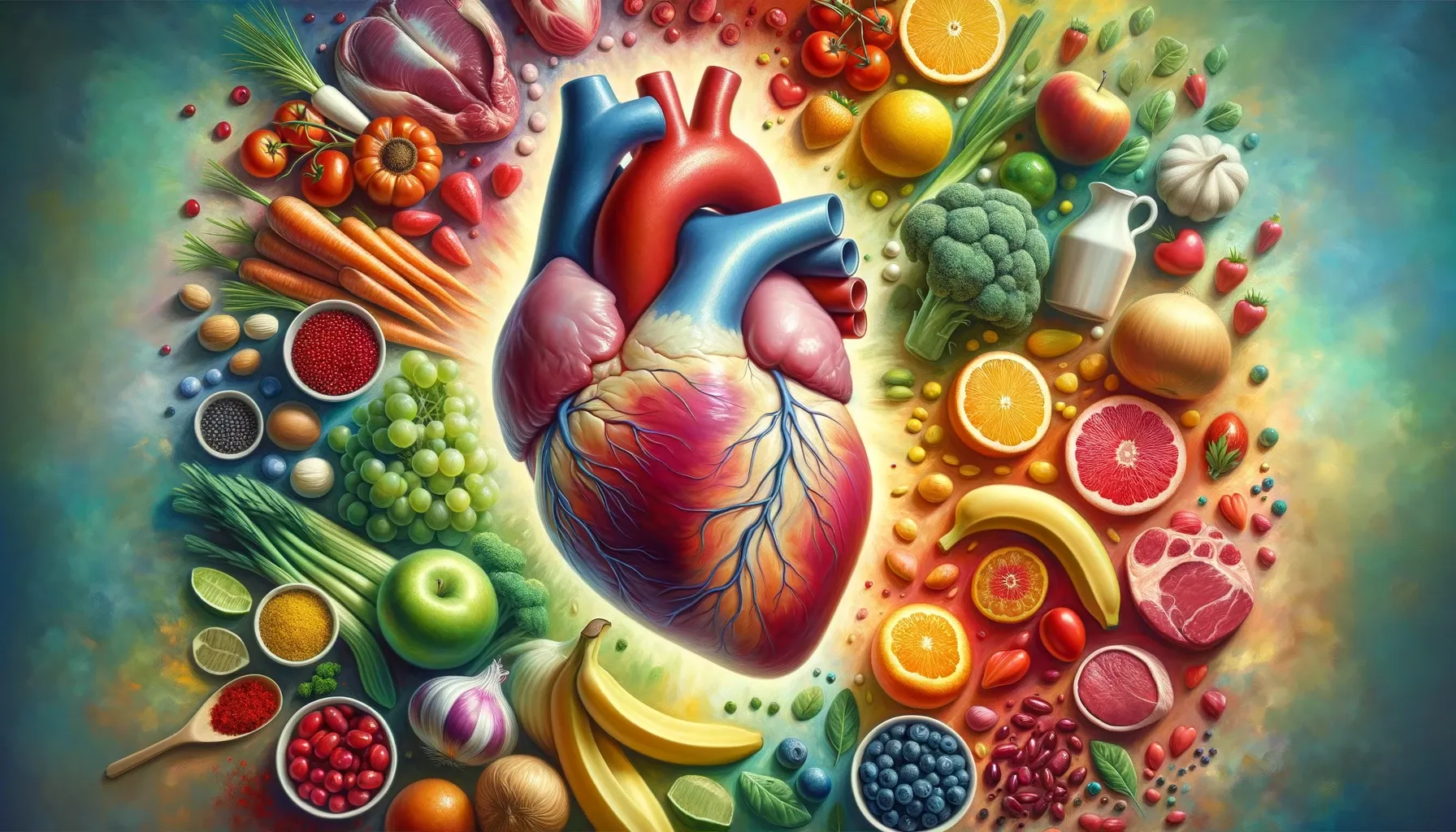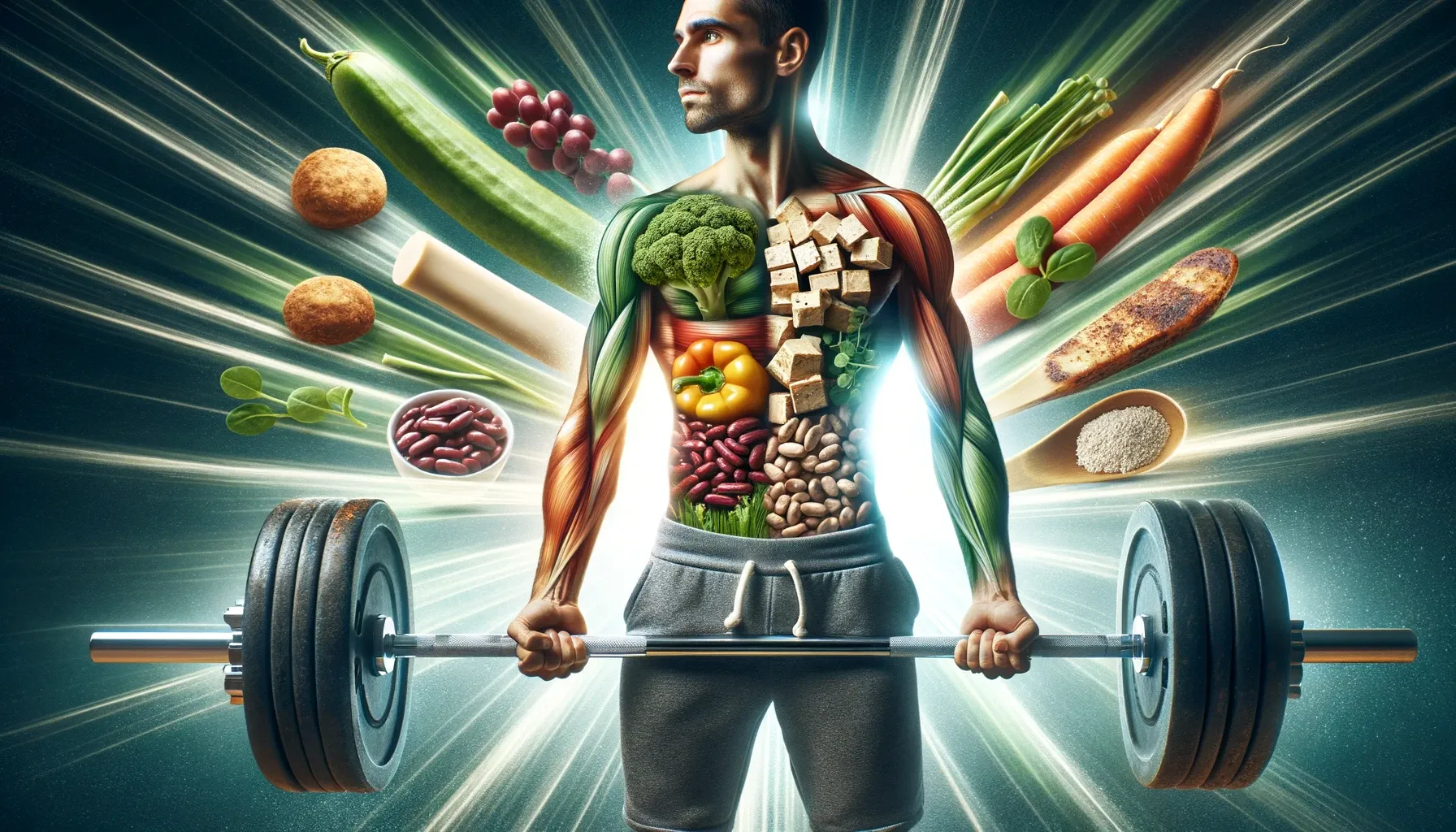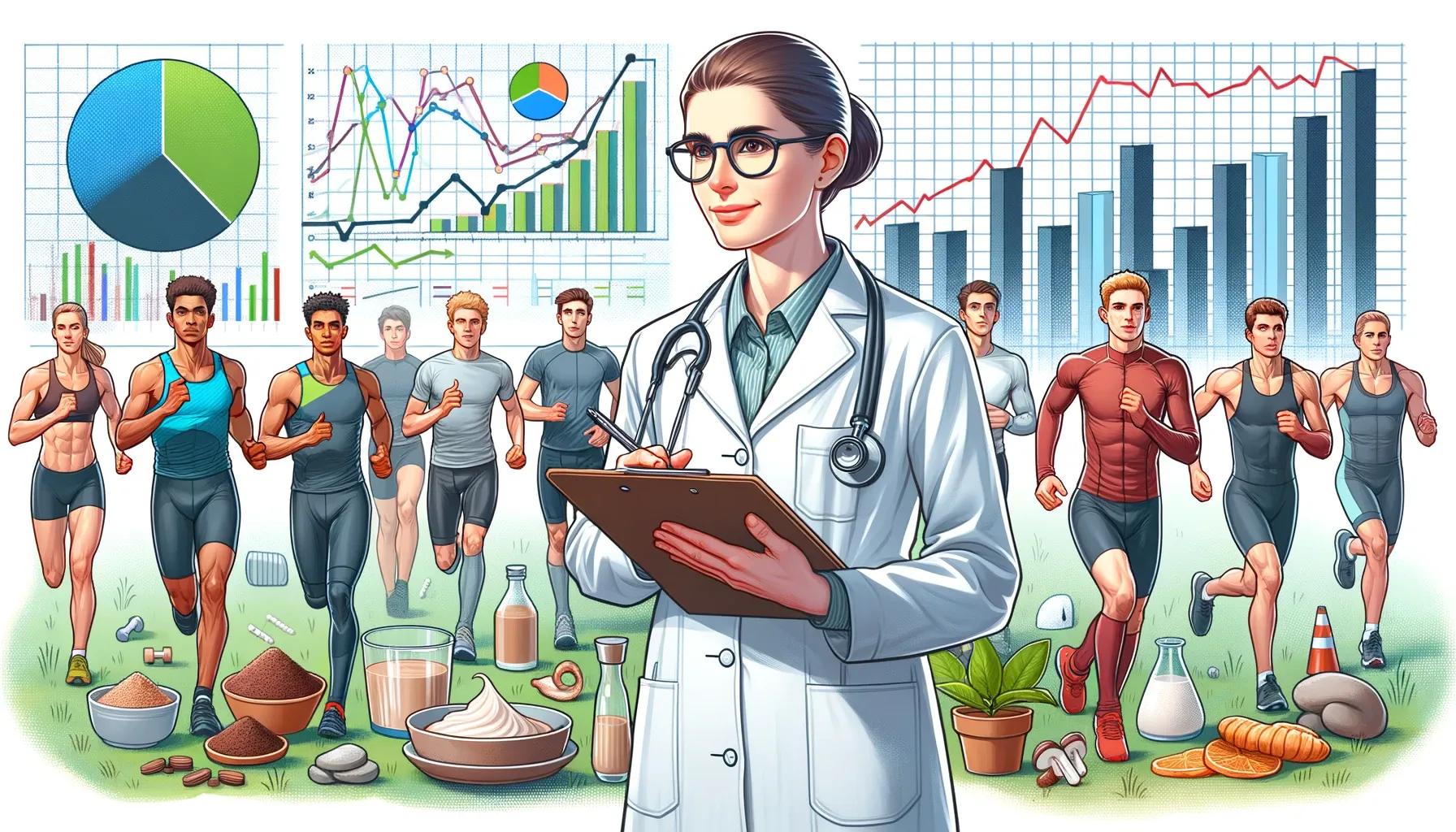As an athlete, I have always been curious about the impact of different diets on athletic performance. Recently, there has been a growing trend towards plant-based diets among athletes, with many embracing the benefits of vegetarianism. But is this just another health hype, or do vegetarian athletes actually experience performance benefits?
Plant-based diets, such as vegetarian and vegan diets, have gained popularity for their potential health benefits, including weight loss and reduced risk of inflammatory diseases. The NURMI study, led by sports scientist Katharina Wirnitzer, is currently investigating the effects of a vegan diet in high-performance, ultra-endurance sports. This research aims to shed light on the long-term consequences and advantages of plant-based diets in comparison to omnivorous or vegetarian diets.
It is important to approach these findings with a critical eye, considering potential biases and misinformation surrounding vegetarianism. However, with the global vegan food market expected to reach a value of $24.3 billion by 2026, there is no denying the increasing popularity and interest in plant-based diets among athletes.
In this article, I will explore the potential performance benefits and health advantages of vegetarianism for athletes. We will delve into the effects of these diets on cardiovascular health, weight management, and overall athletic performance. Additionally, we will address concerns related to nutrient intake, protein sources, and caloric needs that vegetarian athletes may face.
So if you’re curious about the impact of vegetarian diets on athletic performance, join me as we uncover the truth behind the hype and discover if vegetarian athletes truly have an edge in the world of sports nutrition.
The Quest to Reduce Cardiovascular Disease
Research suggests that a vegan diet can play a significant role in reducing the risk of cardiovascular diseases. By focusing on plant-based foods and limiting animal product consumption, individuals can potentially lower their cholesterol levels, combat obesity, and improve overall heart health.
One of the reasons behind the cardiovascular benefits of a vegan diet is the presence of antioxidant phytonutrients in plant-based foods. These compounds help protect the body against oxidative stress, which can contribute to the development of heart disease. Additionally, plant-based foods are rich in nitrates, which have been shown to have positive effects on blood pressure regulation.
On the other hand, certain animal products, particularly those high in saturated and trans fats, can promote inflammation and the production of metabolites like trimethylamine-N-oxide (TMAO), which are associated with an increased risk of cardiovascular problems. By eliminating or reducing the consumption of these inflammatory fats, individuals following a vegan diet can potentially reduce their risk of developing cardiovascular disease.

Quotes:
“Switching to a vegan diet has been one of the best decisions I’ve made for my heart health. Not only have I seen a decrease in my cholesterol levels, but I also have more energy and feel lighter on my feet during workouts.” – Amanda, vegan athlete
Table: Vegan Diet and Cardiovascular Health
| Benefit | Explanation |
|---|---|
| Lower cholesterol levels | Plant-based foods are naturally cholesterol-free and can help reduce LDL cholesterol levels. |
| Reduced obesity | By focusing on nutrient-dense plant-based foods, individuals can maintain a healthy weight, reducing the risk of obesity-related heart problems. |
| Antioxidant protection | The presence of phytonutrients in plant-based foods helps protect against oxidative stress and inflammation, which are associated with cardiovascular disease. |
| Decreased risk of TMAO production | Eliminating or reducing animal products can lower the production of TMAO, a metabolite linked to an increased risk of heart problems. |
While a vegan diet can offer significant cardiovascular benefits, it’s important to note that it may not be a one-size-fits-all solution. Factors such as individual genetics, lifestyle choices, and overall dietary patterns can also influence heart health. It’s always recommended to consult with a healthcare professional or a registered dietitian before making any major changes to your diet.
In the next section, we’ll explore the relationship between veganism and athletic performance, examining the potential advantages and challenges that vegan athletes may face.
Veganism and Athletic Performance: High Hopes but Little Evidence
Vegan athletes have been gaining attention in the sports world, with many believing that a plant-based diet can enhance their performance. However, when it comes to the impact of veganism on athletic performance, the evidence remains limited and inconclusive.
One of the concerns for vegan athletes is meeting their protein needs. While it is true that animal-based protein sources are typically more bioavailable and easier to meet protein requirements, plant-based sources can still provide sufficient protein. Grains, nuts, and soy are excellent sources of plant-based protein, and fortified cereals and soy milks can supply vitamin B12, which is essential for energy production and red blood cell formation.
However, it’s important for vegan athletes to pay close attention to their protein intake and potentially consume larger quantities of plant-based foods to meet their daily requirements. The bioavailability of vegan protein sources may be lower compared to animal-based sources, which means that vegans might need to consume more protein to ensure their bodies are adequately nourished.
| Nutrient | Animal-Based Sources | Plant-Based Sources |
|---|---|---|
| Protein | Lean meats, poultry, fish, eggs, dairy | Grains, nuts, seeds, legumes, soy |
| Vitamin B12 | Meat, fish, poultry, dairy, eggs | Fortified cereals, soy milks, nutritional yeast |
In terms of caloric intake, vegan athletes can meet their energy needs by making smart food choices. Certain fruit juices can provide adequate calories for athletes, and a well-planned plant-based diet can supply all the necessary nutrients for optimal performance. It’s crucial to prioritize nutrient-rich plant-based foods and ensure that caloric requirements are being met to support athletic endeavors.
In conclusion, while there is a growing interest in veganism among athletes, the evidence regarding its impact on athletic performance is still limited. Vegan athletes need to pay careful attention to their protein intake and ensure they are meeting their daily nutritional requirements through plant-based sources. With proper planning and a focus on nutrient-dense foods, vegan athletes can thrive and excel in their chosen sports.

Veganism and Weight Loss: Making Healthy Choices for a Healthier You
When it comes to weight loss, many people turn to vegan and vegetarian diets as a means to shed those extra pounds. And it’s no wonder why – these plant-based eating plans are often associated with healthier body weights. But is it really as simple as eliminating animal products from your plate? Let’s uncover the truth behind veganism and weight loss.
First and foremost, it’s important to understand that simply adopting a vegan diet does not guarantee weight loss. The key lies in making healthy food choices and focusing on nutrient-dense whole foods. While it’s true that plant-based diets can be lower in saturated fats and higher in fiber, self-selection bias and individual food choices still play a significant role in weight management.
It’s worth noting that overeating is possible even on a plant-based diet, especially if you rely heavily on processed and unhealthy vegan foods. Just because a product is labeled “vegan” doesn’t automatically make it healthy. To successfully lose weight on a vegan diet, I recommend incorporating plenty of fresh fruits and vegetables, whole grains, legumes, and nuts. These are the real nutritional powerhouses that will fuel your body and support your weight loss goals.
Ultimately, the key to successful weight loss on a vegan diet is to prioritize nutrient-rich plant-based foods and practice portion control. By making smart choices and being mindful of your caloric intake, you can achieve a healthier weight and improve your overall well-being. Remember, a well-balanced meat-based diet can also support weight loss goals, so the choice between vegan and omnivorous diets ultimately depends on your personal preferences and dietary needs.
FAQ
What are the potential health benefits of a vegan diet for athletes?
Some potential health benefits of a vegan diet for athletes include reduced risk of cardiovascular diseases, relief of symptoms in certain autoimmune diseases, and healthier body weight management.
Can a vegan diet provide sufficient protein and vitamin B12 for athletes?
While a vegan diet may result in lower intake of essential nutrients like protein and vitamin B12, plant-based sources such as grains, nuts, soy, and fortified cereals and soy milks can supply these nutrients. It is important for vegan athletes to carefully plan their diet to meet their protein and vitamin B12 requirements.
Is it possible to meet caloric needs on a vegan diet?
Yes, it is possible to meet caloric needs on a vegan diet. Certain fruit juices can provide adequate calories for athletes. However, it is important to prioritize nutrient-rich plant-based foods and make healthy food choices to ensure overall nutritional balance.
Can a vegan diet support weight loss?
Yes, a well-balanced vegan diet can support weight loss goals. However, it is important to note that self-selection bias and individual food choices play a significant role in weight management on a vegan diet. Making healthy food choices and focusing on nutrient-dense whole foods are key to achieving weight loss on a vegan diet.
